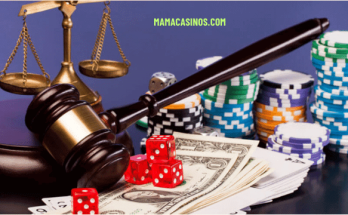The Netherlands’ online gambling regulator KSA recently announced it will introduce new regulations in 2021. Until then, it’s not providing casino licenses. Here’s a rundown of everything you need to know about the rules.
- The new Remote Gambling Act will go live on January 1st, 2021
- The first Dutch-licensed online casino to launch in July 2021
- There will be four types of licenses
Read more: A Review of the Online Gambling Sector in 2019: New Casinos, Regulations, and More
Duo Regulatory Plan
The new regulations in the Netherlands will centre on two pillars:
- Legalizing online casinos
- A framework to protect problem gamblers
The second part of the new gambling act will also be fine-tuned to apply to land-based casinos too. In fact, it’s a crucial reason why the Dutch government extended its January launch date for the new Act by six months.
A gambling license will cost €45,000 per one gambling website. It will be non-refundable and could cover one or all of these services:
- Games against RNG software
- Liver dealer games in which players square off against fellow players
- Sports betting
- Horse racing bets
Read more: Online live casino Singapore makes gambling a significant activity- How?
Although a minor addition, all applications for a Dutch gambling license must be written in the Dutch language. The only exemption is where deeply technical writing is used. And still, an accompanying document done in Dutch will have to be submitted.
The Primary Criteria
It seems obvious, but the Dutch government won’t provide a gambling license to everyone who applies for one. It will choose qualified applicants carefully, mostly using the following determiners:
-
Reliability
The KSA says reliability will be the most important qualification for companies that want to serve the Dutch market. Precisely, operators must have a clean background free of criminal behaviours.
For clarity, the KSA says its reliability criteria will apply to everyone associated with a casino, from stakeholders to directors.
-
Cooperative
One of the KSA’s most notable complaints about operators is that they often fail to cooperate with the regulator. A case in point is when Chairman Renee Janssen announced last October that four casinos had refused to remit fines it had imposed on them.
Read more: How to Stop Gambling Addiction
As a result, the online casino regulator has made it clear it won’t be licensing anyone who’s previously failed to pay up fines or taxes. It seems like an unnecessary statement, but an important reminder that companies must cooperate with KSA to retain their licenses in the future.
-
Players’ Centered
The new regulations will heavily focus on issues that affect Dutch players, most notably problem gambling. As a result, the regulator will be keen not to license any operator with a history of enabling addictive gambling.
In the meantime, the KSA has been fining offshore casinos that target Dutch players without a license left right and centre. It’s already imposed hefty fines at some famous online casinos, although few if any have paid the penalties.
-
Experience
The Dutch government has a history of requiring operators to go through an interim period where they are assessed for their ability to serve its citizens. Due to that, it has often watched new casinos closely and even limited certain operators until they could prove they can follow Dutch laws appropriately.
The Cowboy Operator program, for example, limits casinos with issues with the KSA for two years. After the period, they are then allowed to run an online gaming website. To be clear, the program is coming to an end in 2021 once the new regulations go into effect.
State vs. Independent Casinos
Similar to a few European countries, the Netherlands will feature a few state-owned casinos. Holland Casino is the most talked-about among them, mostly because it’s launching at the same time the new regulations will go into effect.
Crucially, the casino will also feature a website: Holland Casino Online. It will offer everything you can expect from a modern iGaming website: slots, blackjack, poker, scratch card and live dealer games.
On the other end, the Netherlands is ready to welcome a slew of independently run online casinos. They will offer modern casino games and sports betting services. They will work on desktop and mobile devices. More importantly, they will work in a competitive environment free of unnecessary government interference.
Taxation Rates
Before the government proposed the new rules, it taxed state-owned casinos up to 40.85% of their gambling revenues each year. It then proposed a 29% tax on online casinos’ gross gambling revenues.
Read more: Gambling Made Easy: The Simplest Games to Play
Of course, KSA has had a tough time collecting these taxes. And even when it imposed fines, it still couldn’t collect money from casinos located outside of the EU.
Fortunately, the Dutch government doesn’t tax players’ winnings. However, how the amount KSA decides to tax online casinos will affect players tremendously. In the past, its 29% tax rate has been viewed as too high to attract huge brands.
Dutch’s New Laws vs. Britain and Malta
Britain and Malta are two of the most respected regulators in Europe. The UK mostly regulates companies that want to serve the local market. But on the other end, Malta provides licenses that can be applied throughout Europe and the rest of the world.
Application Fees
While the Netherland will charge €45,000 for a license fee, Malta only charges 25,000. Britain charges as little as £100 for an application fee but also demands 15% of gross annual revenues and yearly license renewal fees.
Games Allowed
Similar to Britain and Malta, Dutch is allowing casinos to offer all major types of casino games: slots, table, live dealers and instant wins games. It will also support sports betting.
Read more: The Best Gambling Stories
In essence, the Netherlands new laws will be almost on par with what Britain and Malta demand. However, its slightly high tax rate could be a deal-breaker for many casinos. Britain charges a maximum of 15% while Malta offers even lower rates at 5%.
As such, anything above 15% on gross annual revenues might see online casinos shy away from Dutch licenses. Not only will that mean fewer taxes for the government but also lead to more Dutch citizens gambling in offshore casinos.




